Bonding with your cat can be a deeply rewarding experience, enhancing your relationship and ensuring your feline friend feels secure and loved. A strong bond can lead to a happier, more well-adjusted pet, and a deeper, more fulfilling companionship for you. Additionally, a well-bonded cat is more likely to exhibit positive behaviors and be more responsive to training and social interactions. Here are ten ways to strengthen your bond with your cat.
1. Spend Quality Time Together
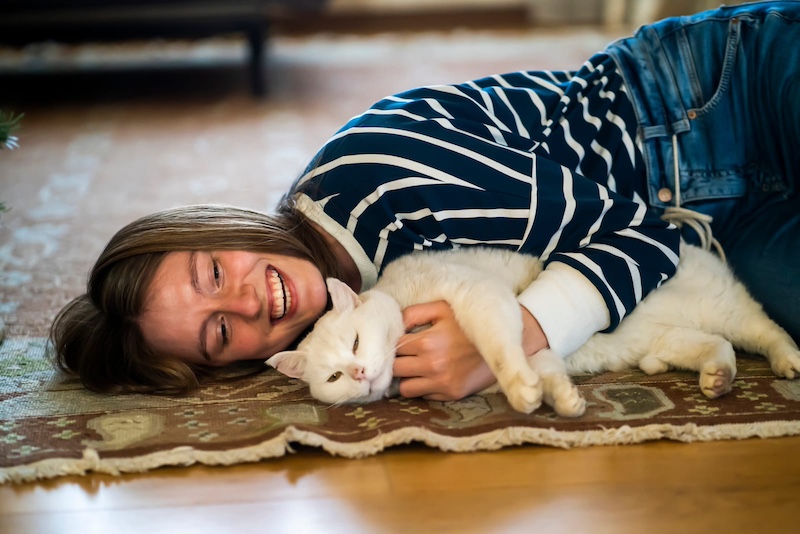
Cats may seem aloof, but they thrive on companionship. Spend time each day interacting with your cat. This can be as simple as sitting next to them while you read a book or watch TV. Your presence alone can be very comforting to them. Engaging in activities they enjoy, like grooming or playing, will also help strengthen your bond.
2. Play Regularly
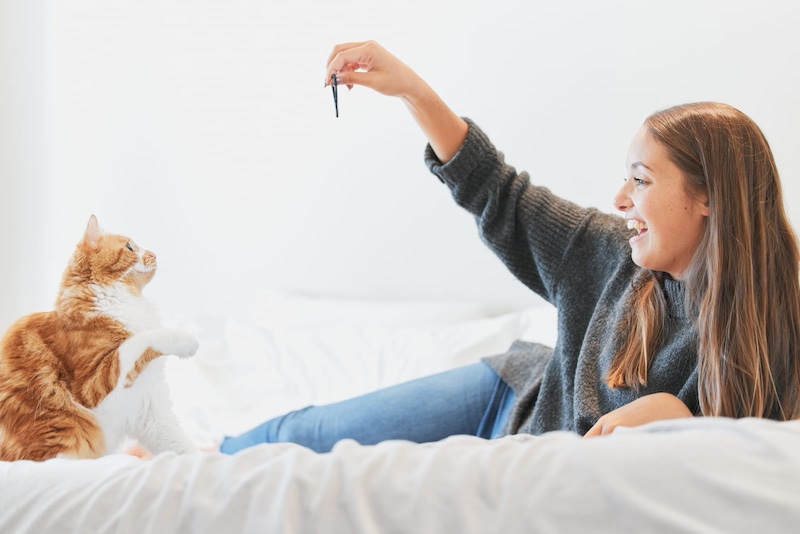
Playing with your cat is one of the best ways to bond. Cats are natural hunters, and interactive toys like feather wands or laser pointers can stimulate their instincts and provide much-needed exercise. Regular play sessions help keep your cat physically fit and mentally stimulated, and they also create positive associations with you.
3. Respect Their Space
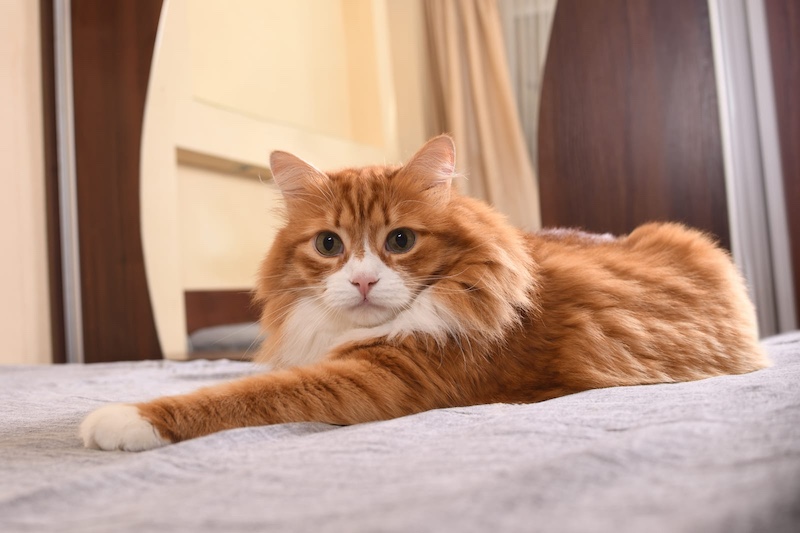
Cats are territorial animals and need their own space. Ensure they have safe, quiet areas where they can retreat and feel secure. Respecting their space means not forcing interaction when they’re not in the mood. Over time, they’ll learn to trust you more, knowing that they can approach you on their own terms.
4. Provide a Comfortable Environment
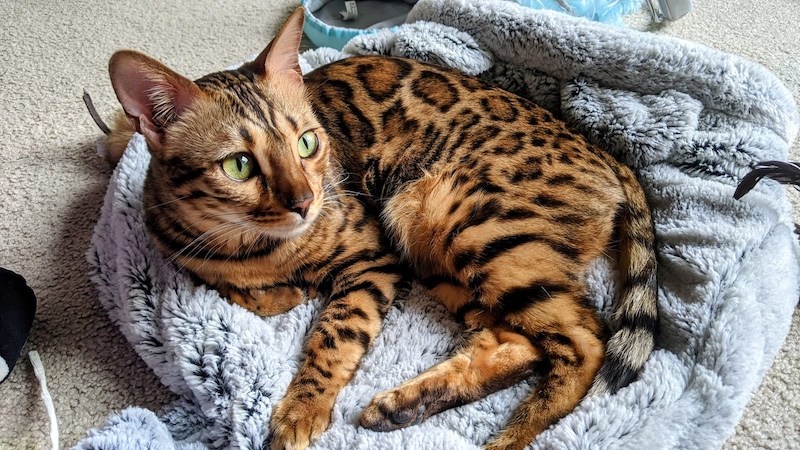
Creating a cat-friendly environment is crucial. Provide cozy beds, scratching posts, and perches where your cat can relax and observe their surroundings. Cats love to climb and perch up high, so investing in a cat tree or shelves can enhance their living space. A comfortable and enriching environment can help your cat feel more at home and more connected to you.
5. Groom Them Regularly
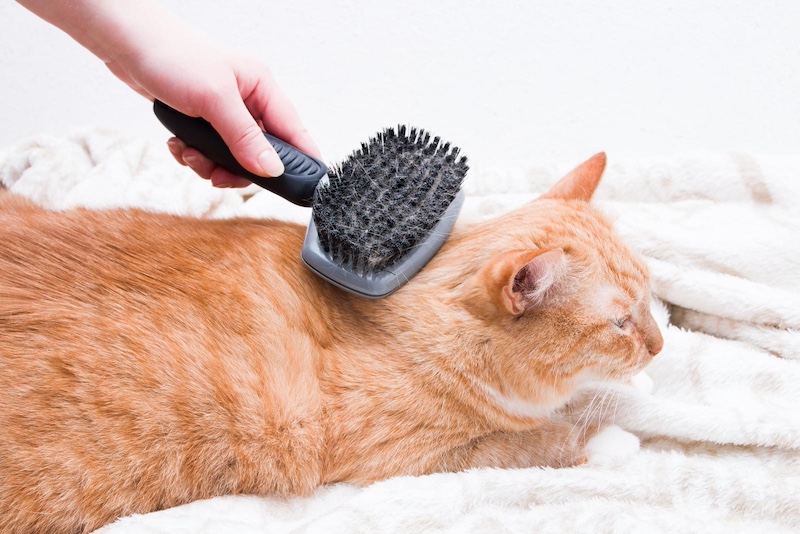
Grooming your cat can be a great bonding activity. Many cats enjoy being brushed, and it can be a relaxing experience for both of you. Regular grooming sessions help keep their coat healthy and reduce shedding and hairballs. It’s also an excellent opportunity to check for any health issues, such as skin problems or parasites.
6. Offer Treats and Food

Cats often bond strongly with those who feed them. Offering treats or feeding them can create positive associations. Try hand-feeding treats or using them as rewards during training sessions. Make sure the treats are healthy and given in moderation to avoid weight gain. Feeding your cat at regular times each day can also help establish a routine, which can be very comforting for them.
7. Talk to Your Cat

Cats may not understand our words, but they can recognize and respond to our tone of voice. Talking to your cat in a calm, soothing manner can help them feel more comfortable and secure. You might be surprised at how much your cat seems to understand and appreciate your conversations. Over time, they may even start to respond with their own meows and purrs, creating a unique form of communication between you.
8. Learn Their Body Language

Understanding your cat’s body language is crucial for building a strong bond. Cats communicate a lot through their body language, and recognizing their signals can help you respond appropriately. For example, a cat with a relaxed posture, slow blinking eyes, and a gently swaying tail is usually content. On the other hand, an arched back, flattened ears, and a twitching tail indicate fear or agitation. By learning to read these cues, you can better understand your cat’s needs and emotions.
9. Provide Mental Stimulation
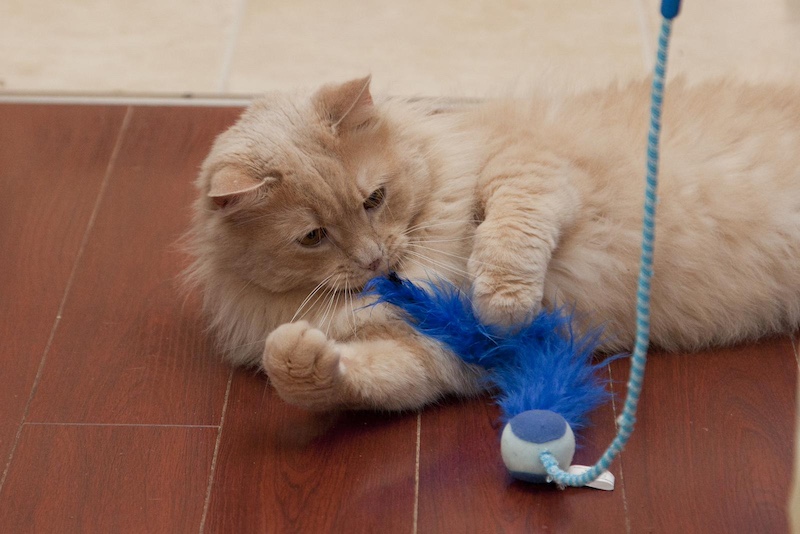
Mental stimulation is essential for your cat’s well-being. Puzzle feeders, interactive toys, and even training sessions can provide mental challenges that keep your cat engaged and happy. Teaching your cat new tricks or commands can be a fun way to bond and stimulate their mind. Cats are intelligent creatures and can learn a variety of behaviors with positive reinforcement.
10. Respect Their Personality
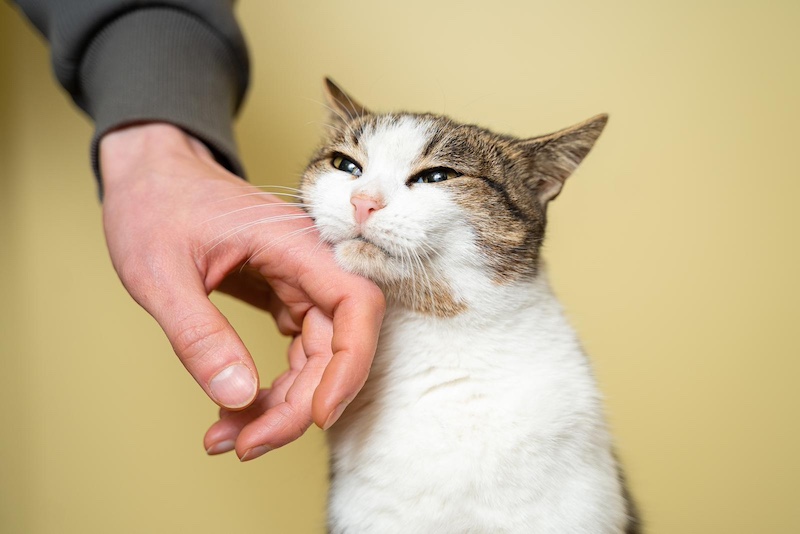
Every cat is unique, with their own personality and preferences. Some cats are naturally more affectionate and social, while others may be more independent or shy. Respect your cat’s personality and interact with them in ways that they enjoy. Forcing them into situations they’re uncomfortable with can damage your relationship. Instead, let your cat guide the interactions and be patient as they learn to trust you.

